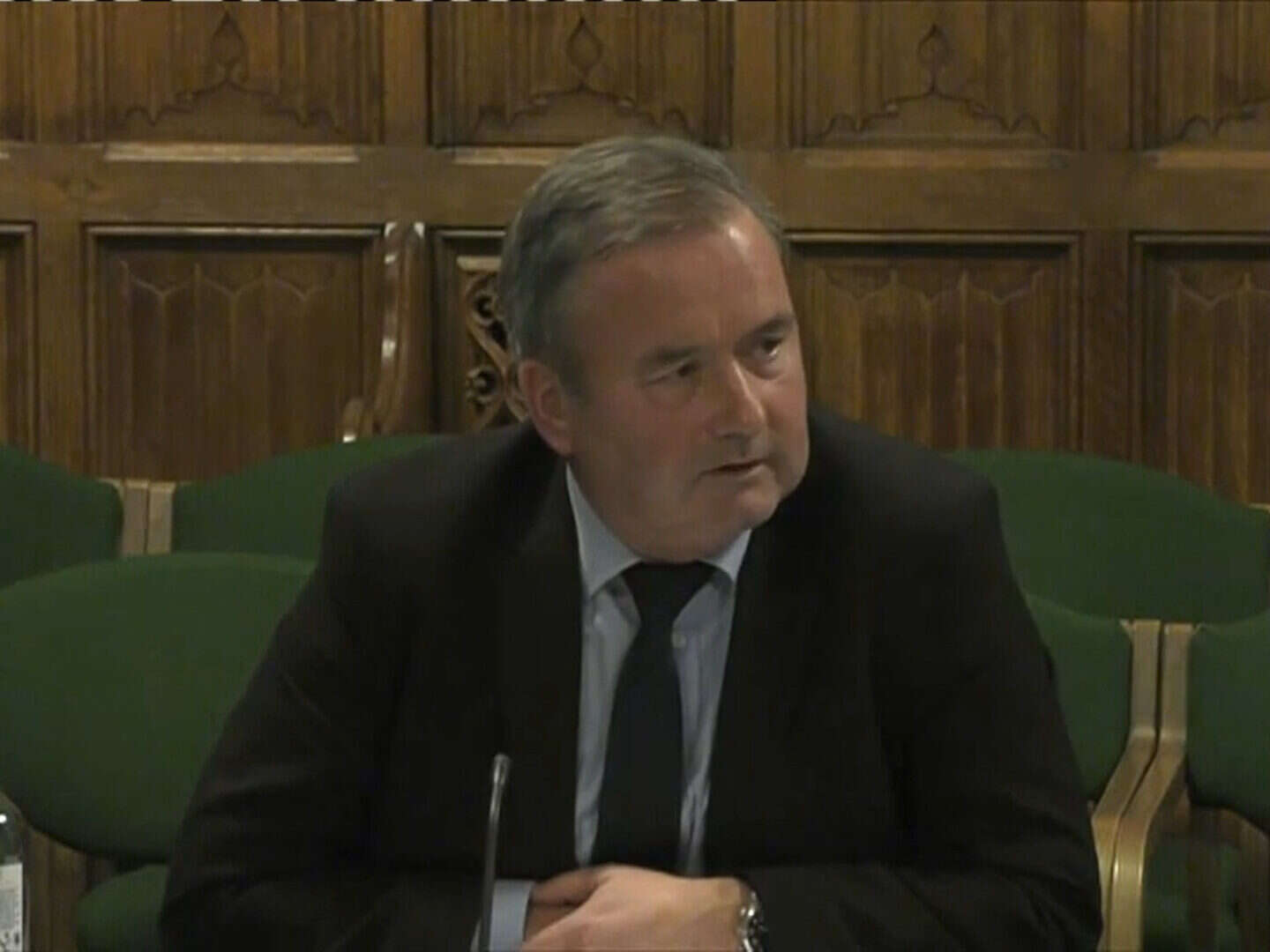
Broadcasters are “ready to go” with filming Crown Court hearings but the introduction of wholly televised trials is “some way down the line”, according to ITN’s head of legal and compliance.
John Battle, who is also chair of the Media Lawyers Association, was appearing before a meeting of Parliament’s Justice Committee on “court reporting in the digital age” on Tuesday.
Much of the session, which also heard evidence from family courts president Sir Andrew McFarlane and Legal Education Foundation research director Natalie Byrom, was focused on making the justice system more accessible.
Battle said that with regard to filming sentencing hearings in the Crown Court: “We hope it starts soon. I think as broadcasters, we’re ready to go.
“And that I think will be a good thing for justice. It will be the first time that the public will be able to see in the media, the trial court, the Crown Court itself.”
Recording of sentencing at significant Crown Court cases has ostensibly been legal since June 2020, provided broadcasters have the written permission of the presiding judge and only the judge themselves is depicted in footage. However, no sentencings have yet been broadcast.
Battle told Press Gazette that a pilot programme for sentencing filming had been disrupted by the pandemic, but that he anticipated filming to begin in earnest in 2022. He also noted that sentencing remarks have already been filmed in Scotland, which has a separate legal system from England and Wales.
Battle told the committee that he thought many more parts of the justice system could be opened to filming “whether it be the High Court, whether it be even the outcome of a coroner’s inquest.
“If a coroner was giving a judgment as to the outcome of a particular case that had a matter of public importance attached to it, why shouldn’t that be filmed?”
Asked if he would like to see filming in Crown Court cases expanded to encompass a whole trial and people besides the judge, Battle said: “I think that’s some way down the line… for the time being, I don’t think it’s likely there will be a full trial…
“I do envision at some point there will be a case where you will be able to see, for example, the opening of the case by the prosecution or, for example, an image of the defendant in the court. I think that’s perhaps the next step after sentencing, but it’s very much a step at a time.”
Battle also reiterated the call he made in The Times in November for a “reporters’ charter”.
He said this should include a designated space for reporters to sit in the court, WiFi, access to documents used in evidence, and the right to make representations before the court.
“Reporters are an important part of the [justice] system. And there are many rules and regulations and protocols which apply and help them, but there’s no one place where all that’s drawn together,” he said.
“What I’m proposing is essentially… a template of basic rights reporters can ask for in the courts and can have the commitment of the court service itself.”
Battle added: “If you’re going along every day to the courts and you’re finding it difficult to find which reporting restriction you’re supposed to be applying or not, or you’re not being given access to documents which you’re entitled to, it’s not going to encourage reporters.”
Separately, Legal Education Foundation research director Byrom told the committee she was “deeply concerned that open justice is under threat” because “we have so little information about what happens to people within our justice system.
“In 2020 nearly a third of questions that were asked in Parliament of [the Ministry of Justice] could not be answered because they did not hold basic information about the system. And that’s a state of affairs that really can’t be allowed to continue,” she said.
Striking a similar note, Sir Andrew told members that the closedness of the family courts system to the media undermines public trust in the institution.
“For the public to receive negative report after negative report about what the judiciary, the family courts, social workers are doing on behalf of society, is a highly unsatisfactory state of affairs…
“I genuinely feel that we do conduct ourselves professionally, properly, we’ve got an extremely thorough process. And it’s a fair process. But that’s not the perception that the public have. And I feel that the time has come for there to be a change in that and the way forward is to be open.”
Sir Andrew’s transparency review of the family courts, published in October, called for “accredited media representatives to be able, not only to attend hearings, but to report publicly on what they see and hear… subject to very clear rules to maintain the anonymity of children and families”.
[Read more: Journalists to be given more freedom to report on family court hearings as current system ‘not sustainable’]
Media representatives were only allowed into the family courts in April 2009. McFarlane’s review found that in many cases journalists still could not report details from the hearings without making expensive applications.
In 2019 Sir Andrew published draft guidelines on how reporters can go about lifting family court reporting restrictions.
Picture: Parliament TV
Email pged@pressgazette.co.uk to point out mistakes, provide story tips or send in a letter for publication on our "Letters Page" blog
